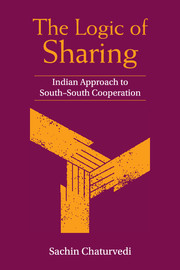Book contents
- Frontmatter
- Contents
- List of Tables and Figures
- Foreword
- Preface
- List of Abbreviations
- Section I Policy and Institutional Framework
- Section II Country and Regional Case Studies
- 4 Nepal: Evolving Framework and the Success of Communities
- 5 New Vigour in Africa: Ethiopia and Mozambique
- 6 Entrepreneurship Development in Laos and Cambodia
- 7 Exploring Niches in CIS: Experiences in Tajikistan and Kyrgyzstan
- Section III Summing Up
- Bibliography
- Index
6 - Entrepreneurship Development in Laos and Cambodia
from Section II - Country and Regional Case Studies
Published online by Cambridge University Press: 05 March 2016
- Frontmatter
- Contents
- List of Tables and Figures
- Foreword
- Preface
- List of Abbreviations
- Section I Policy and Institutional Framework
- Section II Country and Regional Case Studies
- 4 Nepal: Evolving Framework and the Success of Communities
- 5 New Vigour in Africa: Ethiopia and Mozambique
- 6 Entrepreneurship Development in Laos and Cambodia
- 7 Exploring Niches in CIS: Experiences in Tajikistan and Kyrgyzstan
- Section III Summing Up
- Bibliography
- Index
Summary
South–South cooperation has tended to focus on production and distribution issues rather than macroeconomic questions such as identifying the key concerns of the developing world. It has prioritised and indeed – intensified industrialisation as a way of reducing inequality, overcoming under- and unemployment, and promoting skill development. This view rests on the Prebisch's proposition that sluggish growth in demand for peripherally-produced commodities and a burgeoning peripheral demand for industrial products manufactured at the centre, results in declining terms of trade for developing countries. This, in turn, makes it difficult for developing countries to generate sufficient export earnings to finance the imports they need for their development, hence causing them always to operate under threat of a current account deficit.
This view also ties in with India's own experience of skill development. Nehru's original initiative in inviting China and Indonesia to send students to India for technical training programmes expanded sufficiently to warrant a new, enlarged programme that consolidated India's fellowship and training programmes under the ITEC banner. By 2014, ITEC was offering 10,000 training slots to 167 partner countries; the slots were spread over nearly 270 courses in 47 different institutions regarded as centres of excellence in their areas of work.
Experience of this kind was useful in informing India's commitment to the Initiative for ASEAN Integration (IAI), a programme of the ASEAN Secretariat that aims to reduce the gap between advanced and new members from the Cambodia, Laos, Myanmar and Vietnam region (CLMV). India's involvement came in response to a call from the ASEAN Secretariat for its partner countries, including India, to take special measures to help narrow the development divide and promote national competitiveness through intra-regional cooperation.
Indian interest in the CLMV region is very clear; Delhi has already been engaged with CLMV countries at the bilateral level and was keen to respond to the call from ASEAN heads of state and governments at their 2003 summit conference that led to the launch of the IAI. The specific mandate for a programme resembling the one that India had already begun came about in 2003 with the declaration of the ASEAN Concord (known as Bali Concord-II). This declaration stressed deepening and broadening ASEAN cooperation through a technical and development cooperative effort that could address the development divide.
Information
- Type
- Chapter
- Information
- The Logic of SharingIndian Approach to South–South Cooperation, pp. 149 - 160Publisher: Cambridge University PressPrint publication year: 2015
